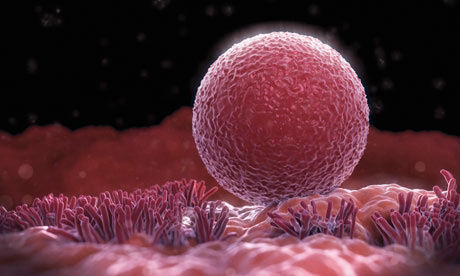日本征集捐卵志愿者 拟建首家私立卵子银行
 日本首次建立了一家私立卵子捐献银行
日本首次建立了一家私立卵子捐献银行A private-sector ovum donation bank has been established in Japan for the first time. The company began accepting egg donations on Tuesday with the intention of creating an “ovum bank。”
The Oocyte Donation Network requires egg donors for assisted reproduction purposes and has 20 women who cannot conceive children registered as prospective recipients, TBS reported. The endeavor, started by families and medical professionals, is the first such endeavor by a private-sector group in Japan。
The network consists of doctors specializing in fertility treatment and patients’ representatives. Network representatives told a news conference that recipient registration lists are closed for the time being, TBS reported。
Although donors’ identities will not be made public, the company has stated that a precondition to donation is agreeing to give the child access to the donor mother’s real name and address. Donors are currently unpaid; however, the network says it may consider compensating donors if none are found within a year。
Recipients are also asked to agree to cover any potential medical costs resulting from adverse health effects in donors resulting from the donation procedure。
TBS reported that so far, five private institutions specializing in fertility treatment have been named as associates of the network and will carry out egg harvesting from donors as well as in vitro fertilization using the donated eggs and sperm from the husband of the recipient family。
日本首次建立了一家私立卵子捐献银行。该公司已于本周二开始接受卵子捐献,旨在建立一家“卵子银行”。
据东京广播公司报道,“卵母细胞捐献网络”以辅助生殖为目的征集卵子捐献者,目前已有20名不能生育的女性登记成为受赠者。这一由家庭和医疗专业人员发起的行动是日本私立团体在这方面的首次尝试。
该网络的工作人员由专长于生育治疗方面的医务人员和患者代表组成。东京广播公司报道称,该网络的代表在新闻发布会上透露,受赠者登记名单暂时将会保密。
尽管捐献者的身份不会对外公开,但该公司声明捐献的前提是同意让孩子知道捐献母亲的真实姓名与住址。虽然捐献者目前不会得到报酬,但该网络表示,如果在一年内没有找到捐卵志愿者,将考虑对捐献者予以补偿。
公司还要求受赠者应同意承担捐献者在捐献过程中因不良健康反应引起的全部医疗费用。
据东京广播公司报道,截至目前已确定有5家专长于生育治疗的私立医疗机构与该网络建立了联系,它们将负责从捐献者那里收集卵子,并用这些卵子与受赠者丈夫的精子进行体外受精。
- 日本首次拍摄大王乌贼“深海巨怪”现真容2013-01-09 11:27
- 日本自杀森林:富士山脚下每年发现百具尸体2013-01-05 14:33
- 日本校花大赛落幕 21岁大二美女封后(图)2012-12-30 09:37
- 日本女性迷上“白马王子”爱情游戏(双语)2012-12-19 13:52
- 双语:日本公司推出3D胎儿模型(图)2012-11-29 11:33
